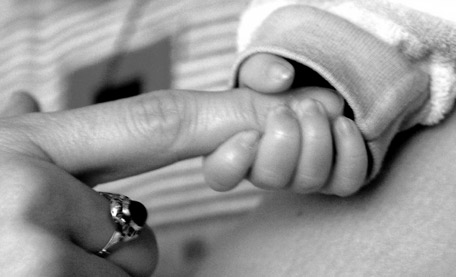University Of Exeter Proceeds Research To Raise Awareness Of Women’s Experiences Of Second Trimester Pregnancy Loss
Pregnancy loss through late miscarriage or termination for foetal anomaly before 24-week viability is normally managed in the NHS by labour and birth. However, women often undergo delivery without the support offered to those later in pregnancy, such as epidural pain relief or midwife assistance. They may not be entitled to the postnatal six-week check, or psychological bereavement support, and they frequently struggle to get their healthcare needs met.
Dr Aimee Middlemiss, from the University of Exeter, will be using her research with women who have experienced second trimester foetal death, very premature labour, or termination for foetal anomaly (TOPFA) to argue that more attention needs to be paid to this neglected type of pregnancy loss. Her interviews with women show that second trimester pregnancy loss is different to early miscarriage and termination, and yet there is little awareness of the particular difficulties which women face.
During the birth process, women often encounter the body of the foetal being or baby and may be encouraged after birth to see what has happened as the death of a baby. However, unlike in cases of stillbirth after 24 weeks, the threshold of legal viability usually means that civil registration is not allowed, and the recognition of personhood and kinship which birth and death registration entails is withheld. This has an impact on access to other support, such as maternity leave. The tension between experiencing the pregnancy ending as a birth, and perhaps the death of a person, but this not being recognised by wider society can be difficult for women.
Dr Middlemiss said: “Second trimester loss is a specific experience which is different to early losses because of the degree of formation of the foetal body, the potential intensity of the labour and birth, and the way many women have begun to consider the coming baby as a specific person.
“My work seeks to create knowledge about a reproductive and social experience which is marginalised and stigmatised. Raising the profile of this little-known form of reproductive loss will provide an academic basis for recognition of the experiences of women and others going through second trimester pregnancy loss.
“I hope the evidence I collect will be used by clinicians, midwives, and managers involved in pregnancy care to improve care for women going through this traumatic experience. I hope it will help them better understand women’s experiences in healthcare and the politics of second trimester pregnancy loss in healthcare settings.
“The research can also be used to teach medical students and midwifery students at undergraduate and postgraduate level about women’s experiences of pregnancy loss and can be used by charities as part of their campaigning work.”
Dr Middlemiss will be writing a book about the reproductive politics of second trimester pregnancy loss. She will also publish journal articles and develop existing relationships with third sector organisations and the APPG on Baby Loss.
She has previously presented evidence to the UK Department of Health and Social Care Pregnancy Loss Review, which was commissioned in 2018 and considers the impact of the 24-week viability threshold on pregnancy loss experiences. Dr Middlemiss has also presented evidence to the Ministry of Justice Consultation on coronial investigations of stillbirths, and to the APPG on Baby Loss about the law regarding traffic accidents and foetal death. She has also presented her research to the charity Tommy’s.

